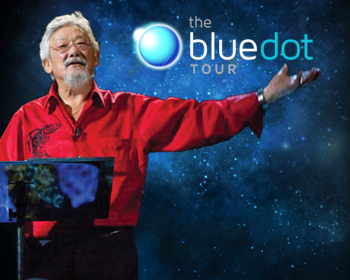As an elder, I’ve watched Canada and the world change in many ways, for better and worse. Thanks in part to cheap energy and technological growth, the human population has more than tripled, from 2.2 billion in 1936 when I was born to about seven billion today. As a boy, I could drink from streams and lakes without worrying about getting sick. My father took me fishing for halibut, sturgeon and salmon on the Vancouver waterfront. Pretty much all food was organic.
Although my parents were born and raised in Canada, our family was incarcerated in the B.C. Interior during the Second World War. Like other people of colour, my parents didn’t have the right to vote until 1948. First Nations people living on reserves didn’t have voting rights until 1960. And, until 1969, homosexuality was a criminal offence, often leading to prison — now same-sex couples in Canada can marry. Without a health-care system, my parents had to worry far more about illness than Canadians today.
Although we’ve degraded our natural environment since my childhood, we’ve made great strides in human rights and social programs. But those advances didn’t come without struggle. It’s important to protect and improve the hard-won rights and social safety net that make Canada one of the best countries for citizens and visitors alike — but it’s crucial to protect the natural systems that make it all possible.
We’re too often asked to choose between a healthy environment and a healthy economy, between health care and environmental protection. But these are false choices. Long-term prosperity and good health absolutely depend on conserving and using our resources wisely and on ensuring our air is pure enough to breathe, our water clean enough to drink and our food nutritious and plentiful enough to keep us healthy and alive. Protecting the environment is good for human and economic health!
Consider water. We can’t survive without it. Most Canadians take our abundant fresh water for granted. But according to the recent Ecojustice report, Waterproof: Standards, “Canada’s drinking water standards continue to lag behind international benchmarks and are at risk of falling even farther behind.” At any time, more than 1,000 drinking water advisories are in effect across the country, many in First Nations communities. Canada doesn’t even have a national water policy. Nor do we have legally binding national air quality standards.
People died in Walkerton, Ontario, because of E. coli in the water. Grassy Narrows residents are being poisoned by waterborne mercury. Toxins in the air and water are affecting people’s health in Sarnia’s Chemical Valley, as are a deadly mix of oil sands chemicals in Fort Chipewyan, Alberta.
This is clearly unacceptable in prosperous, resource-rich Canada. So how do we ensure that all Canadians have the right to enjoy clean air and water and healthy food? We could follow the lead of more than half the world’s nations and enshrine the right to a healthy environment in our Constitution’s Charter of Rights and Freedoms.
That’s one of the goals of the Blue Dot Tour I’ve embarked on with the David Suzuki Foundation and friends, supporters and, I hope, you. It’s a testament to the importance of this tour and the movement it intends to spark that so many musicians, artists and thinkers have volunteered their time to get the word out, including Shane Koyczan, Neil Young, Tanya Tagaq, Feist, Blue Rodeo members, Margaret Atwood, Hey Ocean, Bruce Cockburn, Joel Plaskett, Roy Henry Vickers, Whitehorse, Barenaked Ladies, Danny Michel, Kinnie Starr, Stephen Lewis, Ovide Mercredi and many more.
The events, in 20 cities across Canada, promise to be fun and entertaining, but there’s a serious purpose: To start a national conversation and movement to make sure we all look after this land that gives us so much.
History shows that informed individuals who come together to build a groundswell of opinion and pressure are a powerful force for positive change. We hope this tour will inspire Canadians to take action in their communities, that those communities will in turn inspire provinces to get on board and that ultimately, our right to a healthy environment will be recognized at the national level.
It’s a long road, but together, we can get there. Are you in?
Written with contributions from David Suzuki Foundation Senior Editor Ian Hanington.
Learn more at www.davidsuzuki.org.



